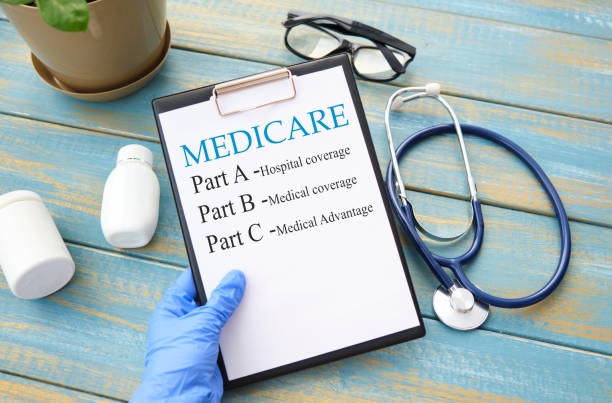The Centers for Medicare & Medicaid Services (CMS) is the agency within the United States Department of Health and Human Services (HHS) that administers the nation's major health programs. The CMS oversees programs including Medicare, Medicaid, the Child Health Insurance Program (CHIP), and the state and federal health insurance markets. CMS collects and analyzes data, produces research reports, and works to eliminate cases of fraud and abuse within the healthcare system.
Key points
- The Centers for Medicare & Medicaid Services is a federal agency that administers the nation's major health programs, including Medicare, Medicaid, and CHIP.
- It collects and analyzes data, produces research reports, and works to eliminate cases of fraud and abuse within the health system.
- The agency aims to provide a health system with better care, access to coverage and better health.
- The CMS releases updated information on the Medicare premium and deductible each year.
How Centers for Medicare and Medicaid Services (CMS) Work
On July 30, 1965, President Lyndon B. Johnson signed a bill into law establishing the Medicare and Medicaid programs . In 1977, the federal government established the Health Care Finance Administration (HCFA) as part of the Department of Health, Education, and Welfare (HEW). HCFA was later named Centers for Medicare & Medicaid Services. CMS now runs many major national health programs that affect the lives of millions of Americans.
The agency's goal is to provide "a high quality health system that ensures better care, access to coverage and better health". CMS is headquartered in Maryland and has 10 regional offices in the United States located in Boston, New York, Philadelphia, Atlanta, Dallas, Kansas City, Chicago, Denver, San Francisco and Seattle.
The CMS manages the administrative simplification standards of the Health Insurance Portability and Accountability Act (HIPAA). The use of administrative simplification standards aims to implement national electronic health record adoption, ensure patient privacy and safety, and enforce HIPAA rules. CMS oversees quality in clinical laboratories and long-term care facilities, as well as providing supervision of health insurance exchanges.
special considerations
As health care costs continue to rise, Medicare premiums also rise every year. Because Part B premiums are deducted from Medicare beneficiaries' Social Security benefits, it is important that people stay informed and understand how these premiums work. This is why the CMS releases information on premiums and deductibles for different parts of Medicare to the public every year.
As of 2021, the standard monthly Part B premium for Medicare is $ 148.50 and the annual deductible is $ 203.3 Higher income individuals are required to pay higher premiums based on the income they report on their income. Part A premiums are payable only if a Medicare beneficiary did not have at least 40 quarters of Medicare-covered employment. Monthly premiums for these people range from $ 252 to $ 471 each month starting in 2021. The deductibles also apply for hospital stays in Part A. For 2021, the inpatient hospital allowance is $ 1,484.
Types of CMS programs
Through its Center for Consumer Information & Insurance Oversight, CMS plays a role in the federal and state health insurance market, helping to implement Affordable Care Act (ACA) laws on private health insurance and providing educational materials to the public. .
The CMS plays a role in the insurance markets by helping to implement the Affordable Care Act laws on private health insurance.
Medicare
Medicare is a taxpayer-funded program for seniors aged 65 and over. Eligibility requires the senior to have worked and paid in the system through payroll tax. Medicare also provides health coverage for people with recognized disabilities and specific end-stage diseases, as confirmed by the Social Security Administration (SSA).
Medicare has four parts, titled A, B, C, and D. Part A covers hospital, skilled nursing, hospice, and home care services. Medical coverage is provided under Part B and includes doctors, laboratories, outpatient care, preventive care and other services. Medicare Part C or Medicare Advantage is a combination of Parts A and B. Part D, signed in 2003 by President George W. Bush, provides coverage for drugs and prescription drugs.
Medicare members share the costs with taxpayers through premiums and out of pocket expenses as noted above.
medical help
Medicaid is a government-sponsored program that provides health coverage assistance to low-income people. The joint program, funded by the federal government and administered at the state level, varies. Patients receive care by paying for things like doctor visits, medical and long-term care costs, hospital admissions, and more.
Applicants who wish to be considered for Medicaid can apply online through the health insurance marketplace or directly through their state's Medicaid agency.
CHIP
The Child Health Insurance Program (CHIP) is offered to parents of children under the age of 19 who earn too much to qualify for Medicaid but cannot afford regular health insurance. Income limits vary, as each state runs a variation of the program with different names and different eligibility requirements.
Many of the services CHIP provides are free, including medical visits and check-ups, vaccinations, hospital care, dental and eye care, laboratory services, x-rays, prescriptions, and emergency services. But some states may require a monthly premium, while others require co-pay.
The CARES law of 2020
On March 27, 2020, President Trump signed a $ 2 trillion emergency coronavirus stimulus package called the CARES (Coronavirus Aid, Relief, and Economic Security) law. Expands Medicare's ability to cover care and services for people affected by COVID-19. The CARES law also:
- Increase the flexibility of Medicare to cover telemedicine services.
- Authorize Medicare certification for home health services by certified medical assistants, nurses and nurse specialists.
- Increase Medicare payments for COVID-19-related hospital stays and durable medical equipment.
For Medicaid, the CARES Act clarifies that non-expanding states can use the Medicaid program to cover COVID-19-related services for uninsured adults who would qualify for Medicaid if the state chose to expand. Other populations with limited Medicaid coverage are also eligible for coverage under this state option.


No comments yet